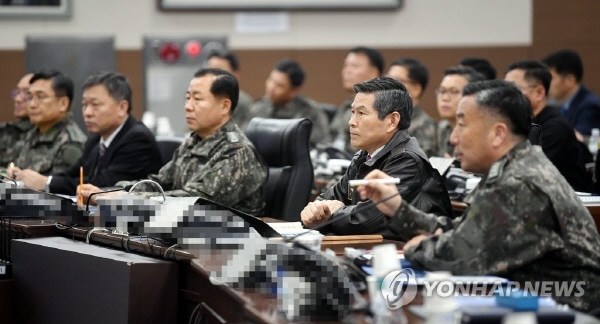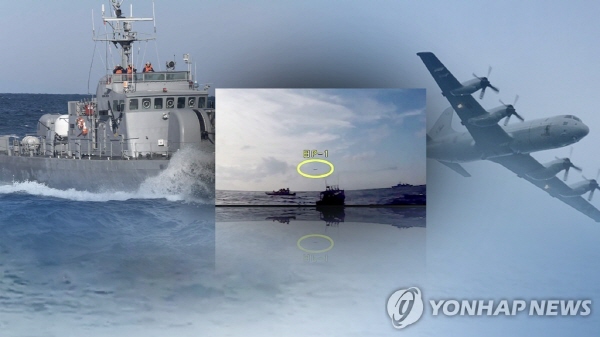A protracted military spat between South Korea and Japan appears to be taking a toll on their military exchanges, despite calls for cooperation over their shared concerns about North Korea's nuclear program, observers said Sunday.
Japan is reportedly reconsidering its plan to send warships to an international maritime security exercise in waters off the peninsula in April, while a senior South Korean Navy official has called off his plan to visit Japan next month.

The two countries have been caught in an acrimonious row that flared up when Tokyo claimed that a South Korean destroyer locked its fire-control radar on its maritime patrol aircraft in the neighbors' overlapping exclusive economic zones on Dec. 20.
Tokyo has doubled down on its claim despite Seoul's argument that the Navy ship did not use any tracking radar against the plane of a friendly country, and that the vessel was on a humanitarian mission to rescue a North Korean fishing boat in distress.
The row further escalated after Japan conducted "intimidating" low-altitude flybys close to South Korean warships three times this month alone despite Seoul's accusations that Japan made such a provocative flight in December when the radar dispute erupted.
On Saturday, Japan's Sankei Shimbun reported that Tokyo's defense ministry is reconsidering the plan to dispatch its helicopter carrier Izumo near Korea for the envisioned exercise aimed at enhancing international cooperation in fighting piracy and humanitarian operations.

Members of the ASEAN Defense Ministers' Meeting-Plus (ADMM-Plus), slated for late April, have been weighing the idea of launching the exercise that will start in waters off Korea's southern port city of Busan and move all the way to Singapore.
Korea and Singapore are the co-chairs this year of the maritime security panel of the ADMM-Plus, which is a defense consultative mechanism involving the 10-member ASEAN and other partner countries, including the United States.
According to NHK, Japanese Defense Minister Takeshi Iwaya has told reporters that he wants to carry out a review to determine what form of the Japanese participation in the exercise will be "appropriate."
Observers here raised the possibility that though Japanese warships may not appear when the exercise gets under way near Busan, they will partake anyway at some point when the exercise moves outside Korea.
Amid chills in bilateral ties, R. Adm. Kim Myung-soo, the commander of the Korean Navy's First Fleet, has canceled his planned trip to Japan. As part of an exchange program, Korea has sent a two-star Navy officer to Japan on odd-numbered years, while Japan has sent an equivalent officer to Korea on even-numbered years.
"In February this year, it is our turn to send our Navy officer to Japan," a military official said on condition of anonymity. "But we have notified Japan of our decision not to send any this year."
On Saturday, Seoul's Defense Minister Jeong Kyeong-doo visited the ROK (Republic of Korea) Fleet Command and called for a "lawful and strong" response should Japan carry out another threatening flyby.
His visit to the command was a highly symbolic gesture as evidenced by the Navy pilot jumper the retired Air Force general wore apparently to highlight his resolve against Japan's provocative move.
"The four threatening flybys are very threatening acts that no navy of any country in the world can condone," he said.
Defense Minister Jeong Kyeong-doo attends a briefing during his visit to the Republic of Korea Fleet Command in the southeastern port city of Busan on Jan. 26, 2019, in this photo provided by his office. (Yonhap)
In a command letter, Seoul's Joint Chiefs of Staff chairman Gen. Park Han-ki instructed his staff to reduce the amount of time needed for a response to a threatening flyby and ensure the prompt reporting of related situations.
Observers have voiced concerns that deteriorating ties between Seoul and Tokyo could undermine efforts to maintain cooperation in persuading Pyongyang to relinquish its nuclear arms, amid an apparent deadlock in denuclearization negotiations between the U.S. and the North.
The latest row added to tensions in the bilateral relationship long strained by historical and territorial feuds.
The two countries have recently sparred over Seoul's top court rulings earlier this year regarding South Koreans forced into hard labor by Japanese companies during World War II.

